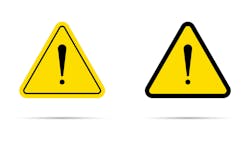FDA warns against use of Skippack COVID rapid test
The U.S. Food and Drug Administration (FDA) is warning people not to use the Skippack Medical Lab SARS-CoV-2 Antigen Rapid Test (Colloidal Gold).
This test is not authorized, cleared, or approved by the FDA for distribution or use in the United States. The FDA is concerned about the risk of false results when using this test because SML Distribution LLC has not provided the FDA with adequate data to show the test works correctly.
SML Distribution LLC is recalling the Skippack Medical Lab SARS-CoV-2 Antigen Rapid Tests (Colloidal Gold), and the FDA has identified this issue as a Class I recall, the most serious type of recall.
The FDA has not received reports of injuries or death associated with use of the Skippack Medical Lab SARS-CoV-2 Antigen Rapid Test (Colloidal Gold).
Recommendations for Test Users, Caregivers, and Healthcare Personnel
Do not use Skippack Medical Lab SARS-CoV-2 Antigen Rapid Test (Colloidal Gold).
Healthcare personnel: If your patient was tested with the Skippack Medical Lab SARS-CoV-2 Antigen Rapid Test (Colloidal Gold) in the last 2 weeks and you suspect an inaccurate result, consider retesting your patients using an FDA-authorized SARS-CoV-2 diagnostic test. If testing was performed more than two weeks ago, and there is no reason to suspect current SARS-CoV-2 infection, it is not necessary to retest.
The unauthorized Skippack Medical Lab SARS-CoV-2 Antigen Rapid Test (Colloidal Gold) uses a nasal swab sample to detect proteins, called antigens, from the SARS-CoV-2, the virus that causes COVID-19. It uses one of two types of swab samples: nasal (anterior nares) or nasopharyngeal.
False-negative antigen test results mean that the test says the person does not have COVID-19, but they actually do have COVID-19. A false-negative result may lead to delayed diagnosis or inappropriate treatment of SARS-CoV-2, which may cause people harm including serious illness and death. False-negative results can also lead to further spread of the SARS-CoV-2 virus, including when people are housed together in healthcare, long-term care, and other facilities based on these false test results. When false negative test results are received, actions to limit exposure to an infected person might not be taken, such as isolating people, limiting contact with family and friends, or limiting access to places of employment.
False-positive antigen test results mean that the test says the person has COVID-19 but they actually do not have COVID-19. A false-positive result may lead to a delay in both the correct diagnosis and appropriate treatment for the actual cause of a person’s illness, which could be another life-threatening disease that is not COVID-19. False-positive results could also lead to further spread of the SARS-CoV-2 virus when presumed positive people are housed together.
